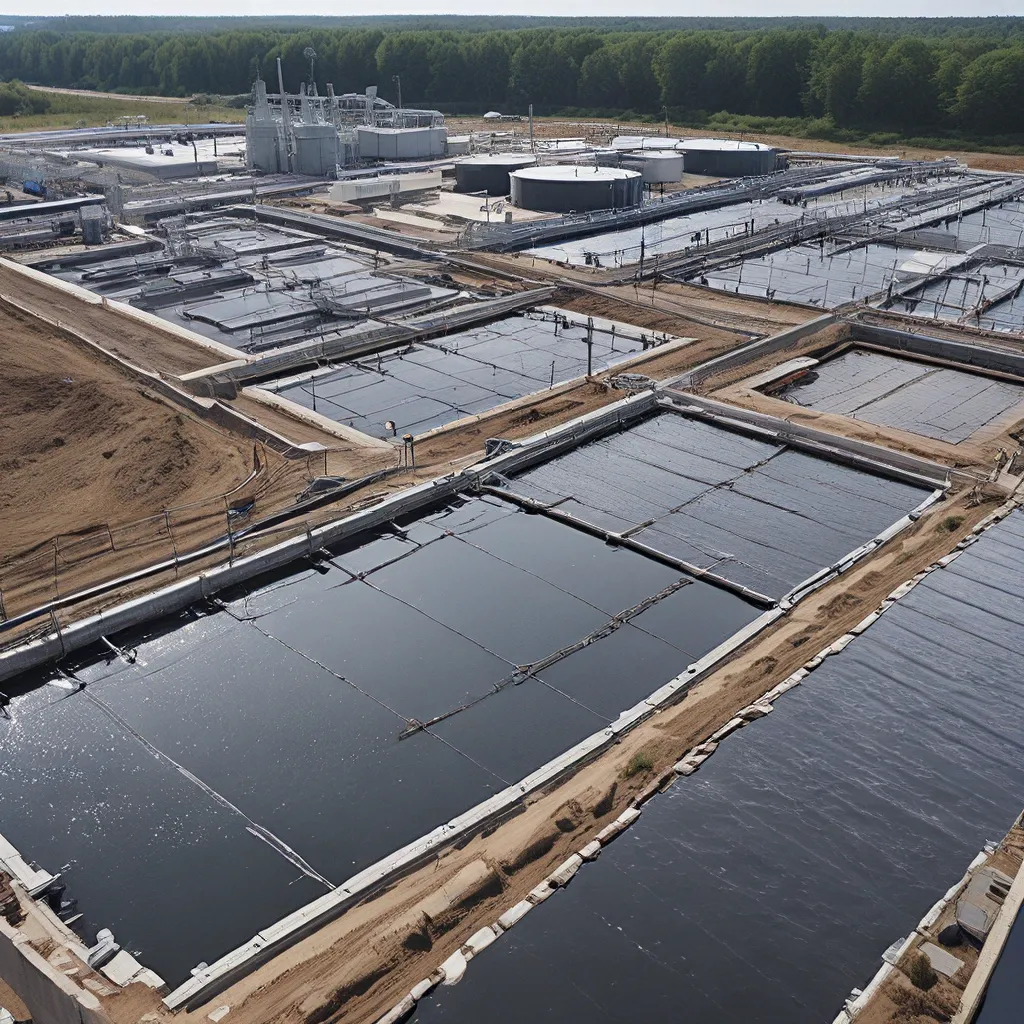
As the world becomes increasingly conscious of its environmental impact, the integration of renewable energy into wastewater treatment has emerged as a promising solution. Harnessing the power of the sun, we can not only reduce our carbon footprint but also unlock a new era of cost-effective, sustainable wastewater management.
The Rise of Solar Power in Wastewater Treatment
Solar energy is no longer just a futuristic dream – it’s a reality that’s transforming the way we approach wastewater treatment. Advancements in photovoltaic and solar thermal technologies have paved the way for its widespread adoption, making it a viable and attractive option for wastewater facilities.
One of the primary benefits of using solar energy in wastewater treatment is the reduction in carbon footprint. By tapping into the sun’s abundant and renewable energy, these facilities can significantly minimize their reliance on fossil fuels and grid electricity, which are major contributors to greenhouse gas emissions. This not only helps protect the environment but also aligns with the growing global push for sustainable practices.
Moreover, the integration of solar energy systems into wastewater treatment plants can lead to substantial cost savings. By eliminating the need for expensive grid electricity and reducing maintenance costs, these facilities can enjoy improved energy efficiency and long-term financial viability. This is a game-changer, especially for wastewater treatment plants that have traditionally struggled with high operating expenses.
Harnessing the Power of the Sun
The incorporation of solar energy in wastewater treatment takes various forms, each offering unique advantages. Photovoltaic systems utilize solar panels to convert sunlight directly into electricity, while solar thermal systems harness the heat energy from the sun to power various treatment processes.
One study highlights the use of solar-powered aeration systems to enhance the efficiency of biological treatment, leading to reduced energy consumption and improved treatment outcomes. Similarly, solar-powered pumping systems can replace conventional pumps, resulting in energy savings and reduced maintenance costs.
But the integration of solar energy in wastewater treatment doesn’t stop there. Solar thermal desalination has proven to be an effective method for managing brine disposal, a common challenge in wastewater treatment. By utilizing the heat from the sun to evaporate and condense water, this approach offers a sustainable solution for dealing with this challenging byproduct.
Overcoming Challenges and Embracing the Future
While the potential of solar energy in wastewater treatment is undeniable, it’s not without its challenges. The initial investment costs associated with installing solar energy systems can be a significant hurdle, posing concerns about financial viability. Additionally, weather variability, such as cloudy days or low sunlight intensity, can affect the reliability and consistency of solar energy generation, requiring careful planning and design.
Regulatory and permitting challenges may also arise due to the unique requirements and standards associated with solar energy installations in wastewater treatment plants. Navigating these complexities can be a time-consuming and complex process.
However, the future looks bright. Technological innovations are continuously driving down the costs of solar energy systems, making them more accessible and cost-effective. Advancements in photovoltaic and solar thermal technologies are also enhancing the efficiency and performance of these systems, further improving their viability.
Moreover, government policies and incentives that promote the use of solar energy in wastewater treatment facilities are playing a crucial role in fostering its widespread adoption. These supportive measures are helping to address the financial barriers and create a more favorable environment for solar energy integration.
Embracing a Sustainable Future
As I embark on my journey through the wastewater treatment industry, I’m truly excited about the potential of harnessing solar energy. It’s not just about reducing our carbon footprint – it’s about transforming the way we approach wastewater management, making it more sustainable, cost-effective, and environmentally responsible.
By integrating solar-powered systems for aeration, pumping, and desalination, wastewater treatment plants can unlock a new era of energy efficiency and cost savings. And as the technology continues to evolve and become more accessible, I’m confident that we’ll see even greater strides in renewable energy integration within the industry.
Of course, the path forward won’t be without its challenges. But with innovative solutions, supportive policies, and a commitment to sustainability, I believe we can overcome these obstacles and pave the way for a greener, more resilient future in wastewater management.
So, let’s embrace the power of the sun and harness the potential of renewable energy to transform the way we treat our wastewater. The future is bright, and it’s up to us to seize the opportunity and create a more sustainable tomorrow.